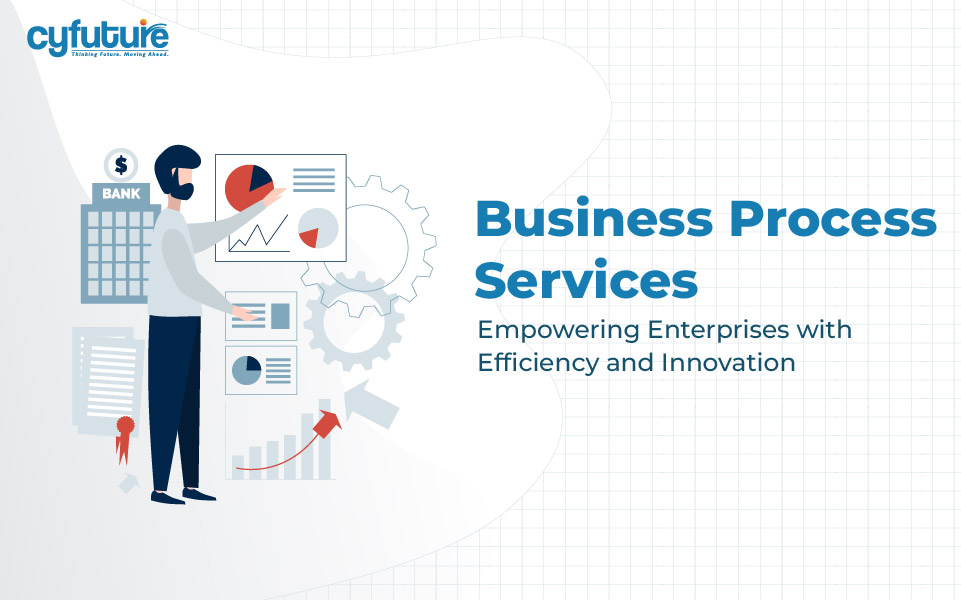 1283 Views
1283 Views
Were you searching for “business process services”?
Business process services (BPS) refer to outsourcing or technologically enabled solutions that streamline essential yet non-core business operations such as finance, customer service, HR, and IT support. They leverage automation, AI, cloud technology, and analytics to help enterprises improve efficiency, accuracy, and agility at scale.

What is Business Process Services?
Business Process Services (BPS) involve delegating key operational functions to external experts or managed through advanced technology platforms. Unlike traditional outsourcing focused mainly on cost-cutting, modern BPS solutions prioritize value creation, digital innovation, and flexibility. These services span finance & accounting, customer engagement, IT management, supply chain logistics, and more.
The global Business Process Outsourcing (BPO) market, a substantial segment of BPS, was valued at approximately USD 302.62 billion in 2024 and is forecasted to grow to USD 525.23 billion by 2030 at a CAGR of 9.8%. Meanwhile, Business Process as a Service (BPaaS)—cloud-based solutions delivering business process functionalities—is projected to reach USD 70.37 billion by 2029, growing steadily at around 4.2% CAGR. These numbers underscore the critical role BPS plays in enterprise digital transformation.
The Role of AI and Automation in Business Process Services
Artificial intelligence and automation technologies are revolutionizing BPS by reducing manual workloads by up to 80%, accelerating processing times, and improving accuracy across operations such as data entry, customer support, and financial reporting. RPA (Robotic Process Automation), cognitive computing, and cloud platforms allow businesses to transform legacy workflows into intelligent, scalable processes that adapt dynamically to market changes.
Cyfuture’s Edge in Business Process Services
At Cyfuture, the focus lies on delivering tailored BPS solutions using next-generation automation, AI, cloud computing, and data analytics. Key highlights include:
- Flexible engagement models allowing enterprises to scale operations according to fluctuating demands without compromising quality or speed.
- Globally distributed delivery centers ensuring 24/7 service availability and reduced downtime.
- Robust security protocols guaranteeing data privacy, regulatory compliance, and risk mitigation.
- Enabling clients to move swiftly from outdated systems to efficient, intelligent business ecosystems driving innovation and growth.
Business Process Services Market Trends and Industry Impact
- North America holds a significant 37% share of the global BPO market in 2024, driven by demand in healthcare, finance, and IT sectors.
- Finance and accounting represent the largest service segment, accounting for over 21% of revenue globally, as companies seek operational efficiency and compliance benefits.
- The IT and telecommunications sector is a major adopter of BPS, representing 24% of the market share, with outsourcing of helpdesk, network management, and customer support functions fueling growth.
- Enterprises increasingly emphasize customer experience by leveraging specialized BPS providers for multilingual, 24/7 customer support and omnichannel engagement, improving loyalty and satisfaction.

FAQs About Business Process Services
-
What types of processes are typically outsourced in BPS?
Commonly outsourced processes include finance and accounting, HR management, customer service, IT support, and supply chain operations.
-
How does AI improve business process services?
AI automates repetitive tasks, increases accuracy, provides predictive analytics for decision-making, and enhances customer engagement through intelligent chatbots.
-
What is the difference between BPO and BPaaS?
BPO refers to outsourcing business functions to service providers, while BPaaS delivers these services through cloud-based platforms, offering greater scalability and integration.
-
Why are businesses shifting to cloud-based business process services?
Cloud-based BPS enhances flexibility, reduces infrastructure costs, supports real-time collaboration, and enables faster innovation.
-
How does Cyfuture ensure security in business process services?
Cyfuture implements industry-grade security protocols and compliance frameworks to protect sensitive data and mitigate operational risks.
-
What industries benefit most from business process services?
Industries such as BFSI (Banking, Financial Services, and Insurance), healthcare, telecommunications, e-commerce, and IT are leading adopters.
-
Are business process services cost-effective?
Yes, BPS can significantly reduce operational costs by optimizing processes, leveraging automation, and outsourcing non-core activities to specialists.
-
How do business process services support digital transformation?
BPS integrates advanced technologies like AI and cloud computing, enabling enterprises to modernize workflows, enhance customer experience, and accelerate innovation.
-
What future trends can we expect in business process services?
Expect growing use of AI-driven automation, industry-specific solutions, expansion of cloud deployment models, and closer integration with enterprise digital ecosystems.
Related Posts in This Category

